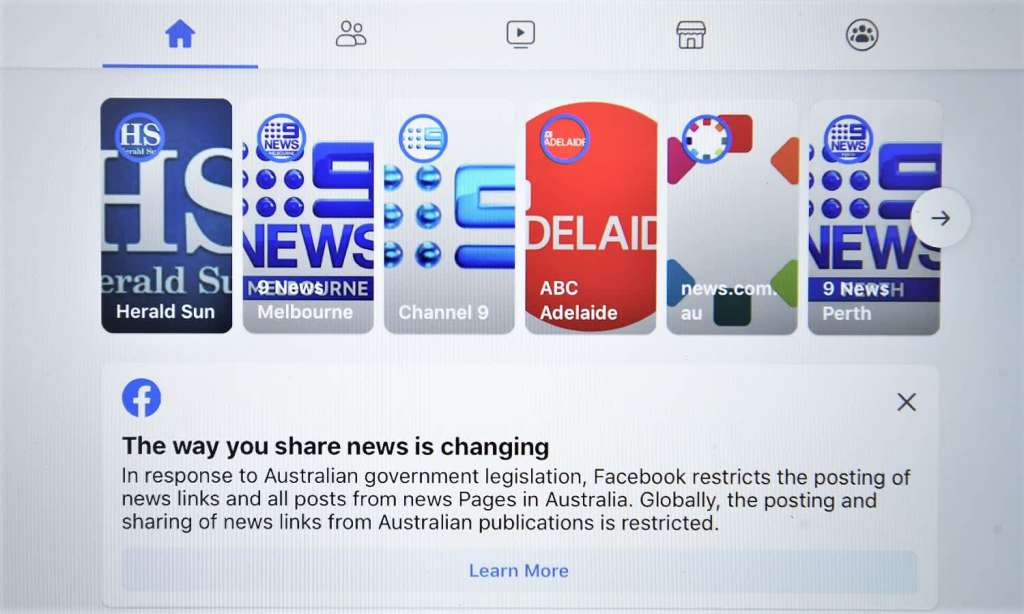A little over a week ago, Australia’s woke up to find their social media news feeds were completely devoid of news. After months of protracted discussions with the Australian Government, Facebook took the startling decision to block access to news content on its platform.
Now, news has been restored on the platform after Facebook returned to the negotiating table with Treasurer Josh Frydenberg and Minister of Communications, Paul Fletcher.
Amendments to the News Media Bargaining Code have been agreed upon that Facebook have indicated will mean a fairer decision for them when dealing with news content.
As the practicalities are being put into effect, Facebook has reestablished news pages on the site and will allow Aussie users to post and share news links while deals are being made between publishers
Is This a Win for Us?
Ostensibly, yes. We’ve faced down the tech giant and come away with a deal that will secure funding for news media organisations in Australia. This is an historic achievement as Facebook and all the Silicon Valley titans are famously resistant to the will of government and the rule of law.
If Australia has proven that social media giants can be reasoned with, and can be reigned in, then it stands to reason that the rest of the world will be lining up to do the same. It’s a reassertion of the fact that nations, not tech execs, are still the most powerful organisations in the world and that we don’t live in some techno-dystopian nightmare ruled over by the Zuckerberg’s of the world – at least, a little less than before.
However, internet activists have warned that government intervention in the flow of content and information online is a dangerous step in a direction that could see politicians dictate how the internet works and who gets to see what.
That being said, those arguments stem from a time when the internet was wilder and weirder than it is today. For most of us, Google and Facebook are the internet and our gateways to content published online. Having some recourse from these companies for payment of the work that the media do in creating much of the content we use and need in our daily lives is a good thing.
Could This Have Been Avoided?
Probably. The extreme reaction of Facebook to the bargaining code shows their serious intention to not allow governments to meddle in their affairs.
The whole argument hinges on the idea that the tech companies are sucking up too much advertising revenue which is suffocating traditional media publications. The government have stepped in here to claw some of that revenue back and level the playing field.
It’s a direct intervention in the free market that Frydenberg claims to love and there are simpler solutions on the table too. Namely, the proper taxing and regulation of the way these companies operate in our jurisdiction.
If the government had committed to some serious accounting strategies to get these companies to pay tax on the money they rake in and then redistribute that money to the media, we might have been in a more beneficial system overall for the whole country.
That approach may have been put in the “too hard” category, however, and sometimes dealing with out-of-control players necessitates a strong hand.
What Happens Now?
Now Google and Facebook are set to start shaking hands and signing on dotted lines. Seven West Media, Nine, News Corp and the Guardian have all already struck deals with Google to display their content on Google’s News Showcase platform.
Seven West has announced that they have signed a “letter of intent” with Facebook to work with them in the future, though details of the deal are yet to be announced.
Facebook wants to bring its Facebook News service to Australia and this will likely feature content in a similar way to Google News Showcase, although they are yet to sign any domestic publishers to the deal.
We’re not entirely out of the woods yet, as deals with Facebook are still in the tentative early stages. Facebook has indicated that they have reserved the right to pull Australian content off the site again in the future if things don’t go their way.
Amendments to the code that brought Facebook back around include increased time in making deals with publishers, and the pushing back of the “final offer arbitration” process. That means, in the event of no agreement between Facebook or Google in a deal with a publisher, an independent mediator would step in to sort the deal out. Going forward, this process is only likely to happen as a last resort.
Read more stories from The Latch and subscribe to our email newsletter.

